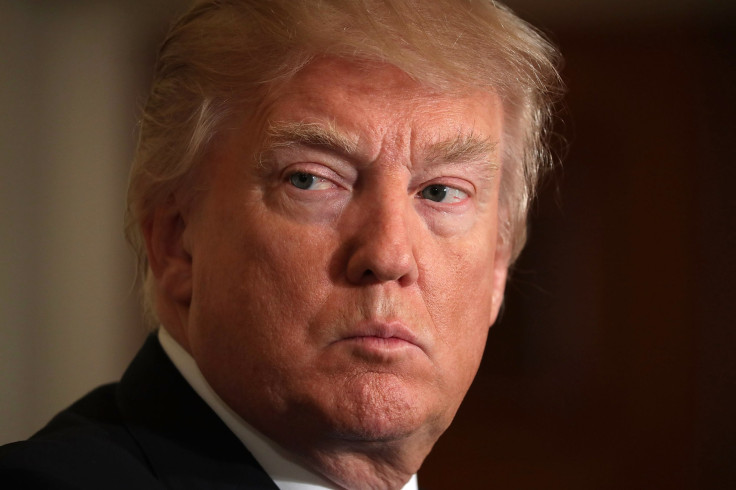Is Trump Hurting The GOP? Democrats Claim Multiple Victories On Election Day

Democrat Ralph Northam defeated Republican candidate Ed Gillespie in the Virginia governor race Tuesday, securing 93 percent of the votes in which Northam scored 53 percent and Gillespie trailed behind with 46 percent. Gillespie called Northam to concede, sources told NBC News.
Most parts of Northam's electoral strategy had revolved around tying Gillespie to the president which he did in almost all of his major campaign ads. "Ed Gillespie supports Donald Trump's plan to take money out of Virginia's public schools, his plan to roll back our clean water and clean air protections. And Ed Gillespie supports Donald Trump's plan to take health care away from thousands of Virginians," the narrator of one of Northam's last campaign ads said.
However, following Northam's strategy, Gillespie's strategy focused more on tying himself to President Donald Trump, even more tightly. Gillespie's campaign endorsed many of the same divisive cultural issues that Trump has focused on in recent months. Gillespie ran ads that criticized players in the National Football League, who protested during the national anthem and he also warned voters that Northam would allow violent Central American criminal gangs like the MS-13 to flourish in the so-called "sanctuary cities," according to CNBC.
However, Trump on Tuesday blamed Republican gubernatorial candidate Ed Gillespie's loss in the Virginia electoral race on the latter's failure to fully "embrace" him. "Ed Gillespie worked hard but did not embrace me or what I stand for," Trump wrote on his Twitter account.
Both the national parties have spent millions of dollars in the first major election this year in Virginia since Trump's surprise victory last year in the presidential elections and were closely watching the outcome and results of the race which could act as an early barometer for the political climate before the 2018 midterm contests.
Amid Northam's victory in Virginia, Democrat Phil Murphy also won the governor's race in New Jersey and his win is expected to return the state to Democratic control after eight years under the leadership Republican Gov. Chris Christie.
Murphy defeated Lt. Gov. Kim Guadagno in the race and his victory gives the Democrats complete control of the New Jersey government where Christie often appeared to fight with the opposition-controlled state Legislature.
Virginia and New Jersey had seen the same trends during the presidential elections in 2016 when the former Secretary of State Hillary Clinton won in the two states. After Northam's victory, the state has become one of seven states nationwide where Democrats now control the governor's mansion and both chambers of the legislature as compared to 26 for the Republicans, according to NBC News.
On Tuesday, the first openly transgender person to be elected and seated in a state legislature, Democrat Danica Roem defeated her conservative Republican opponent Bob Marshall, one of Virginia's most socially conservative lawmakers in a closely watched election in the northern Virginia district.
In September this year in Florida, Democrat Annette Tadeo won a Republican-held state Senate district by a vote of 51 percent as compared to 47 percent. In New Hampshire, Democrat Kari Lerner beat a former Republican state representative in the same month to fill a state House district that Trump had won by 23 points in November 2016. These two wins this year make it to eight Republican-controlled state legislative seats that the Democrats have flipped in 2017 alone. According to CNN, Democrats have now flipped nearly 30 percent of the 27 Republican-held state legislative seats that have come open in 2017 to date, which is considered to be a remarkable number in any circumstance.
Recently Republicans have also cited their concerns that Trump's comments and remarks have hampered with the GOP's image and might affect the votes in the upcoming 2018 elections.
In August, Republicans said their candidates could pay in the 2018 midterms for the continued controversy over Trump’s comments on the deadly violence in Charlottesville, Virginia. Republican campaign chiefs argued that Trump's decision not to single out white supremacists for condemnation for the violence caused could cause severe damage to the party's prospects in the 2018 midterm elections.
"It overshadows everything. If you are a Republican candidate and you have an event today, this will be the first thing you are asked about," former Republican National Committee spokesman Doug Heye, told the Hill in August.
'How do I tell an African-American friend or a Hispanic friend why the Republican Party is better for them than the Democratic Party?" Heye added. "I can talk about any policy that I think might help them, but they will just come back and say that the party does not care about me."
© Copyright IBTimes 2025. All rights reserved.






















